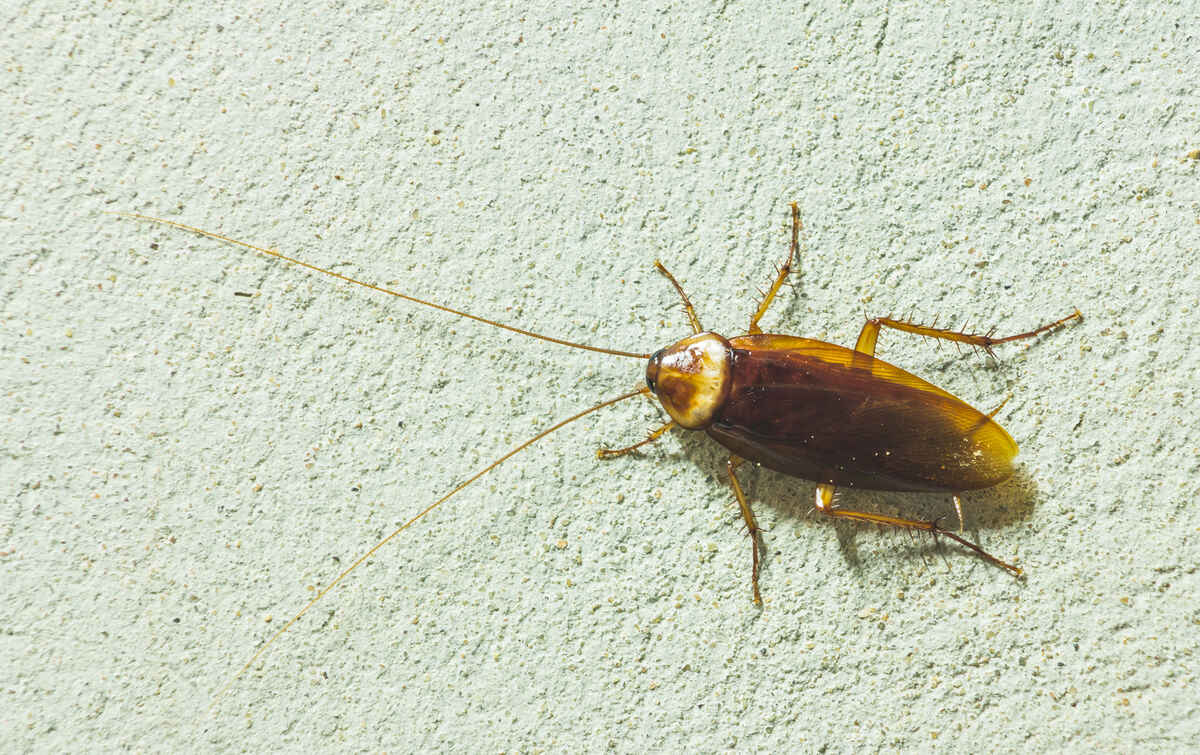Click to Skip Ahead
If humans lose teeth, their dentists can provide a dental implant to replace the tooth and return the mouth structure to normal. If a dog loses his teeth, will he be toothless forever? Thankfully, he doesn’t have to be.
Pet dental implants are a service that some veterinarians now offer. Is this procedure right for your dog? How much does it cost? Keep reading to learn everything you need to know about dog tooth implants to learn if one will benefit your pooch.
The Importance of Dog Tooth Implants
The biggest benefit of getting dental implants for your pooch is that they can prevent jaw bone loss. Just as humans, bones can shrink in all directions from the space left when a tooth is extracted. If your dog were to lose several teeth in one area of his mouth, the bone loss that could occur would be huge.
Another potential benefit of pet tooth implants is that they can limit tooth movement and reduce root exposure.
Implants efficiently restore chewing function as they act like normal teeth. It is a widely accepted that domesticated animals can benefit from hard foods in their diet as it can help prevent plaque build-up. When teeth are missing, your dog will be limited in what he can chew. This could lead to further periodontal issues with the rest of his teeth.
It is important to note here, however, that dental implants for dogs are a relatively new procedure. There seems to be conflicting information online about whether or not implants are safe for use in canines. Some studies suggest that dogs that lose single or multiple teeth can still function fully without impacting their quality of life, begging the question of whether or not it’s worthwhile for owners to spend the money on implants.
We recommend going over the procedure with your vet to determine if getting a dog tooth implant would benefit your pooch.
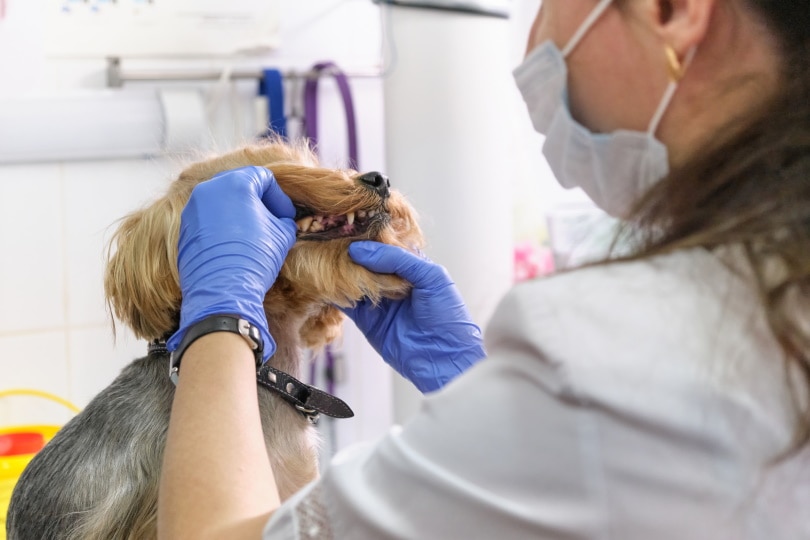
How Much Do Dog Tooth Implants Cost?
The process of putting in a dental implant is complex. Your vet will first need to take a radiograph to determine the bone’s condition and whether or not your dog will also need a bone graft. If a bone graft is necessary, your vet will take the bone and insert it into your dog’s gum tissues. He will then allow the area to recover and give your dog’s body time to assimilate it. This process can take several months.
Once there is sufficient bone to support the implant, the process can begin. Your vet will put your dog under anesthesia so he can place a titanium screw into the implant area. You will need to wait for another 3 to 6 months from this point to see if your dog’s body will integrate the screw with the rest of his jawbone. The goal is for the screw to essentially act as an actual tooth root.
Once the screw has integrated, the ceramic make-shift tooth will go on top of the implant.
Since the process is so complex, the cost of this procedure is quite high. There are a few factors that go into determining the final price of a doggy dental implant.
The size of your dog and the size of the implant will be the biggest determiners of cost. The larger your dog and the bigger the implant, the pricier the procedure will be. Larger dogs will also need more sedatives for their X-rays and anesthesia, driving the price up even further.
Finding cost estimates for implants online is incredibly difficult since this procedure is so now and not performed that often. VetInfo.com provides a conservative estimate for a single implant at $2000. To receive a more precise estimate, contact your local veterinary office, as prices for veterinary care can vary greatly from state to state and vet to vet.
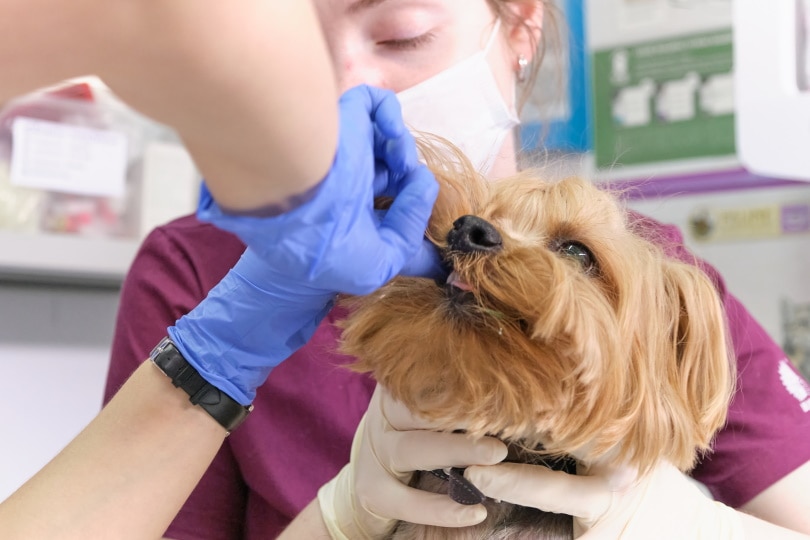
Additional Costs to Anticipate
A dental implant will require anesthesia and X-rays at a bare minimum. If you require a tooth to be pulled before the implant, you must also pay for the extraction.
Pawlicy Advisor lists the average price of a canine X-ray at $150–$250. Most dogs will need some type of sedation to take the images properly. Larger dogs will need more sedatives than smaller ones, driving up the price of the x-ray.
The cost of anesthesia will vary greatly depending on the size of your dog and how much medication he needs to be put under, too. According to Pawlicy Advisor, you can be looking at around $90 for smaller dogs and up to $1,200 for large breeds.
Simple tooth extractions could be as little as $10–$15, while more difficult ones could cost up to $25. While the extraction price is low, remember you’ll need to pay for X-rays and anesthesia on top of the tooth removal price.
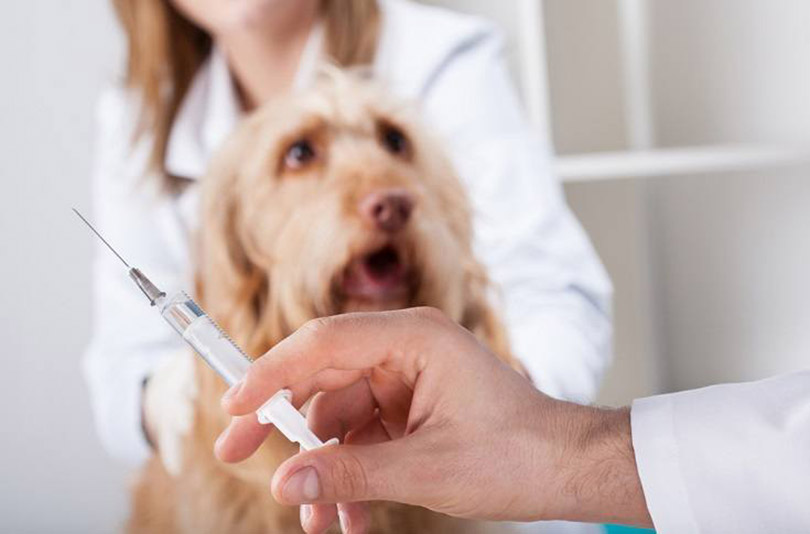
Does Pet Insurance Cover Dog Dental Implant?
Pet insurance is a great investment for dog owners as it can help offset some of the costs of expensive veterinary treatments. Most pet insurance policies will have some type of dental coverage. Most plans will cover only the bare essentials when it comes to dental work like extractions, root canals, and crowns or conditions like gum disease and gingivitis.
Pet insurance does have its limitations, though, just like human health insurance. Most pet insurance plans will not cover things like pre-existing dental conditions, cosmetic services like caps, implants, or fillings, and routine care like exams and cleaning.
How Do I Keep My Dog’s Teeth Healthy?
When it comes to your pet’s dental health, prevention is key. Your pup won’t need an expensive dental implant if his teeth are in tip-top shape.
The best way to prevent dental disease is by brushing your dog’s teeth twice a day. Doing so will minimize the bacteria that linger in their mouths and reduce the amount of plaque that builds up. If plaque stays on their teeth for too long, it will thicken and turn into tartar. Tartar will attract more plaque to stick to it and can cause things like gingivitis.
Dog chew toys and treats can also reduce the amount of plaque. Look for softer toys like rubber balls or toys in which you can hide treats. Go for the double whammy of dental protection by filling those toys with dental treats.
Some pet food companies also manufacture food specifically meant for improving dental health. These foods essentially scrub your dog’s teeth as they chew it. Talk to your vet before changing your dog to a new food, though.
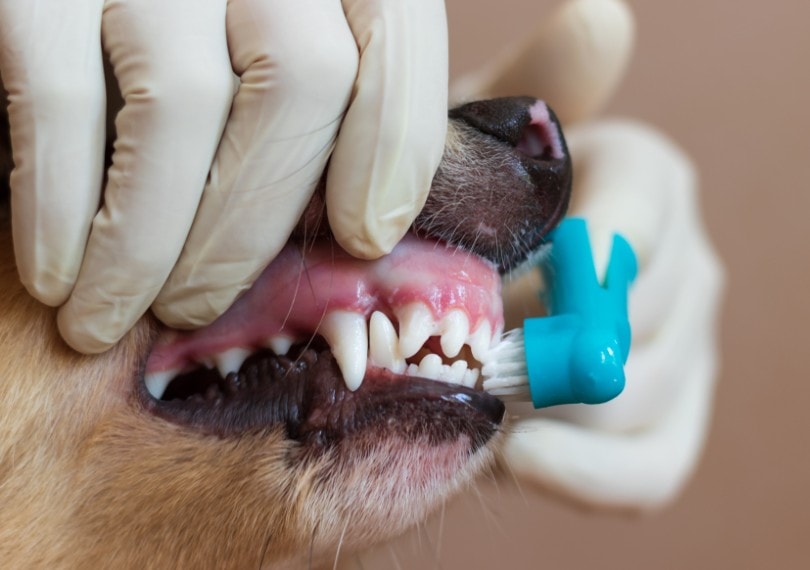
Conclusion
Dog tooth implants are a pricy investment, but they can be helpful for some dogs. Since this procedure is so new, however, there is a lot of conflicting information about the usefulness of implants, and not much is known about the long-term success of dental implants in dogs.
If you think your pup will benefit from an implant, talk to your vet for suggestions. You might also consider getting a second opinion so you can go into this decision fully informed.
Featured Image Credit: YAKOBCHUK VIACHESLAV, Shutterstock







